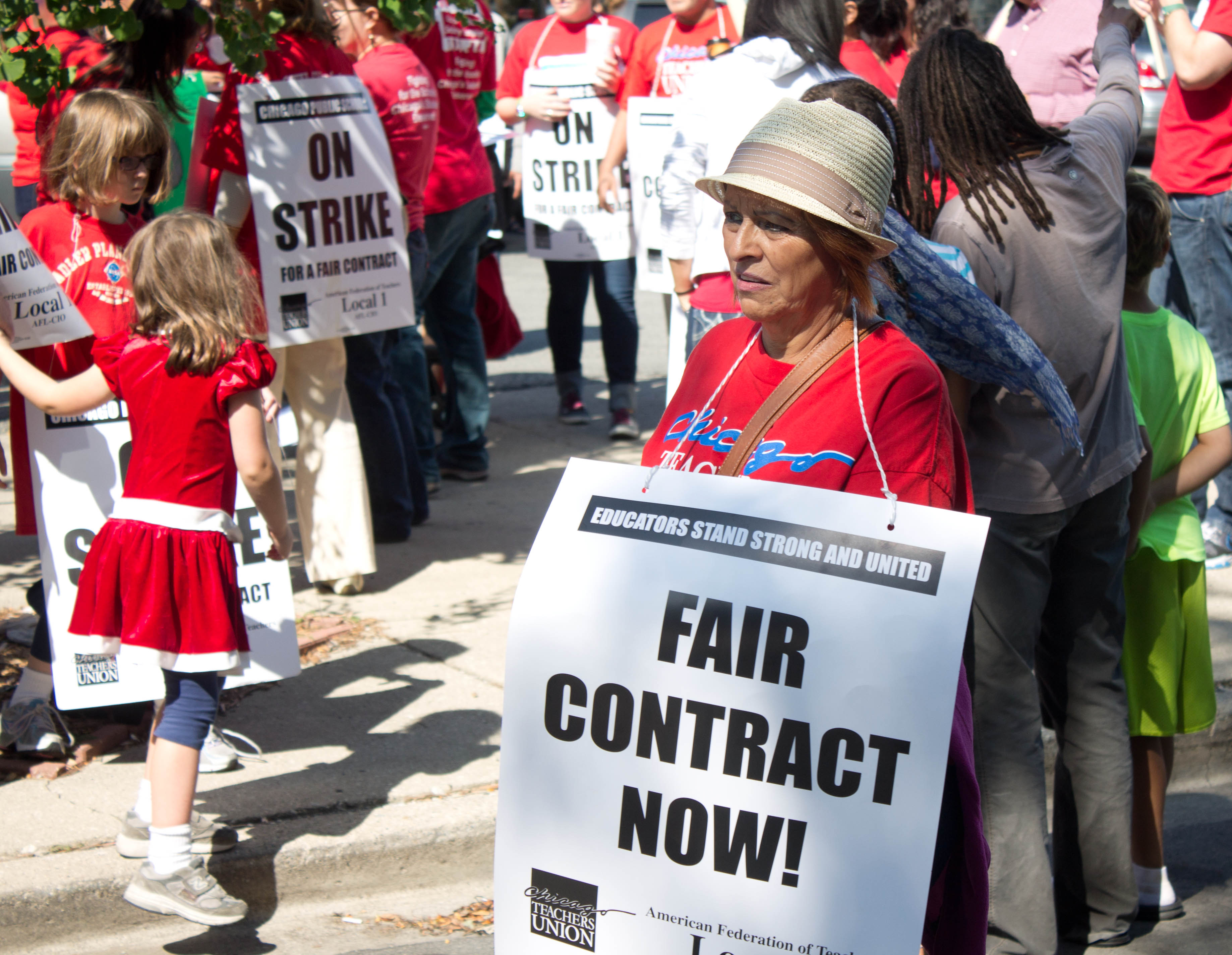U.S. News: Chicago Teachers Fight Back

Major U.S. news stories, from the Presidential Election to the Chicago Teachers' Strike
Election 2012 | Campaign 2012 | The U.S. Economy and the Fiscal Cliff | Petraus Scandal | Gay Marriage | Supreme Court Reviews the Affordable Health Care Act | Colorado Movie Theater Shooting | Occupy Wall Street Anniversary | The Population Shifts in the U.S. | Penn State Aftermath | Trayvon Martin | Gunman Kills Twenty Children in Connecticut Chicago Teachers Fight Backby Jennie WoodOn September 10, 2012, 26,000 public school teachers went on strike in Chicago to protest changes proposed by Chicago Mayor Rahm Emanuel, President Obama's former chief of staff. Emanuel had asked for a number of concessions from teachers, including giving up a promised 4% raise and allowing student test scores to be considered when determining if teachers receive tenure. The strike came after months of disagreement over teacher evaluations, wages, and job security. The strike gained national attention and could affect teachers' unions nationwide in the future. During the strike, teachers and labor groups in other cities pointed out that the situation in Chicago was only part of the growing national debate over pay, conditions, and security for teachers. Thousands of school districts across the country had already been looking at the way teachers were evaluated before the Chicago strike grabbed the national spotlight. President Obama's Race to the Top grant competition, introduced in the summer of 2009, started the debate over teacher evaluations and left teachers worried about job security. The strike in Chicago was an example of the national debate and fear coming to a head. There was also concern at the time of the strike that it would affect the presidential election in November since Chicago is Obama's hometown. Election observers feared the outcome of the strike would influence how teachers would vote. The strike came to an end on September 18, 2012, when 800 union delegates voted to suspend the strike and agree on a contract. Both sides could claim victory. The contract offered annual raises to teachers, but would evaluate them, in part, on student test scores. The contract also made the school day longer. After seven days of no school, students and teachers returned to the country's third-largest school system. More information on teachers and unions: |
- More from 2012 News of the Nation
About the author









